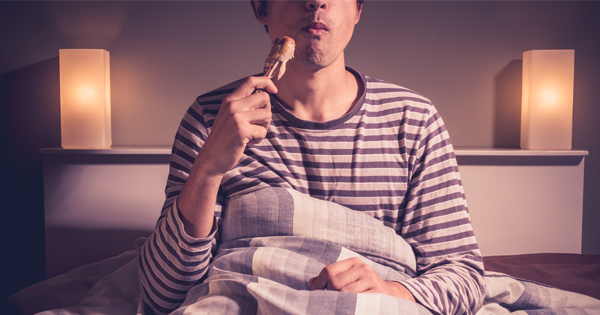Are you constantly working late, staying up to finish “just one more” episode of House of Cards, or just staying up because you “don’t feel tired?” Experts say that there several ways that missing out on sleep can make you pack on the pounds.
- The less sleep you have, the bigger the appetite. When you don’t get enough sleep, your body experiences a decrease in leptin, the hormone that tamps down your appetite, and an increase ghrelin, the hormone responsible for hunger. This means a double-whammy: you’re hungrier, but when you do grab that late night snack, you’re not as satisfied, so you eat more.
- You make bad decisions when you’re tired. Tequila isn’t the only vice that impairs your decision making skills. Exhaustion will do that for you, too. Studies have shown that you’re more likely to make bad decisions when you’re tired. And since you’re already craving high-calorie, sugary, salty foods, your body is just that much less likely to stop you.
- Your sleep schedule is messing with your body clock, and your diet is paying for it. Studies of teens and young women have shown that those who didn’t have a consistent sleep schedule had a higher percentage of body fat and were more likely to eat a higher-calorie, higher-carb diet. When you don't sleep consistently, your body will make up for the lost energy in your diet. The more consistent your sleep schedule is, even on the weekends, the more your body can know what to expect on a day-to-day basis. ##MN_RESP##
- Lack of sleep can actually slow down your metabolism. Even if you’re not a nighttime snacker, your body could be experiencing changes. A recent study discovered that sleep debt puts you at higher risk of obesity, and the risk is 20% higher for every 30 minutes of sleep that you miss.
How much sleep do you really need? If you’re trying to lose or maintain your weight, you need somewhere between seven to nine hours of sleep every night. You can forget the theory that adults need less sleep—the National Sleep Foundation has found that seven hours is the least amount of sleep that an average adult needs, but most people need more.
So close that computer, put down that snack, and hit the pillow. You’re probably sleepier than you think.





